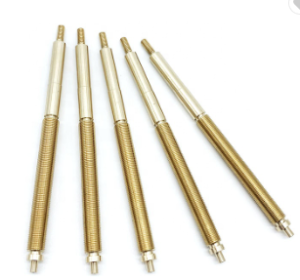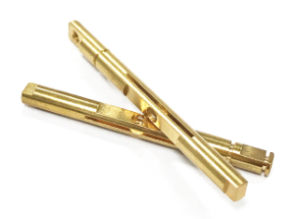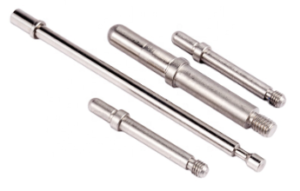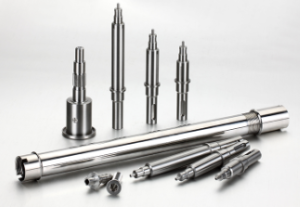CNC Machining Precision Shafts Guide
CNC machining of precision shafts plays a vital role in various industries such as automobiles, aerospace, and medical. The accuracy of the shaft is very important to the overall performance of the machinery, as even the slightest deviation can cause problems such as vibration, noise and reduced efficiency. In this article, we will explore the importance of CNC machining in producing precision shafts and discuss the key factors that influence its accuracy.

1. The importance of CNC machining in precision shaft manufacturing
- accuracy and repeatability
CNC machine tools are capable of high levels of precision and repeatability. Pre-programmed software ensures precise control of tool movement for consistent dimensions and geometry. This precision ensures proper fit and alignment with other components.
- complex geometric shapes
Precision shafts often require complex geometries including grooves, keyways and splines to suit specific applications. CNC machines can easily produce these complex shapes with precision and consistency, greatly enhancing the versatility of precision axes.
- Reduce human error
Human error is a common problem in manual machining processes, resulting in dimensional inconsistencies. CNC machining eliminates most human error because the production process is automated and controlled by pre-programmed software. This significantly improves the overall accuracy of the precision axis.

2.Factors affecting the accuracy of CNC machining of shafts
To maintain a machine’s accuracy, regular calibration checks and adjustments are required, as environmental factors, wear and tear, and other variables can affect its performance. Proper machine calibration ensures that precision shaft dimensional and tolerance requirements are met.

- Workwear selection The selection of cutting tools and inserts depends on the material of the shaft, the desired surface finish and the dimensional requirements. High-quality tools with sharp edges and proper coatings reduce tool wear and ensure consistent cutting performance, resulting in precise shafts.
- Material selection The choice of precision shaft material also affects its accuracy. Different materials have different hardness, machinability and thermal properties, affecting the machining process and final dimensions. Manufacturers must carefully select the appropriate materials to achieve the required accuracy.
- Coolant selection and application The selection and application of coolant plays a vital role in CNC machining of precision shafts. Coolant helps dissipate the heat generated during machining, reducing tool wear and thermal deformation. Proper choice of coolant (e.g. water-based or oil-based) and optimized spraying techniques can improve precision and surface finish.
in conclusion
CNC machining has revolutionized precision shaft manufacturing. Its high accuracy, repeatability and ability to produce complex geometries make it indispensable in various industries. Manufacturers must also consider factors such as machine calibration, tool selection, material selection and coolant application to ensure accuracy in CNC machining of shafts. By adhering to these guidelines and utilizing CNC machining technology, manufacturers can consistently produce high-quality precision shafts that meet the stringent requirements of modern machinery.


Leave a Reply
Want to join the discussion?Feel free to contribute!